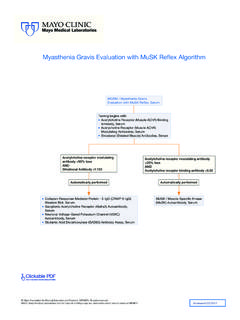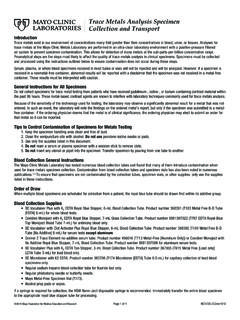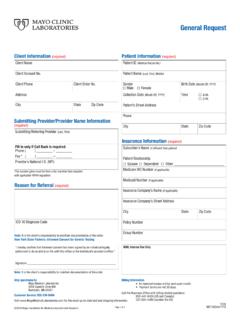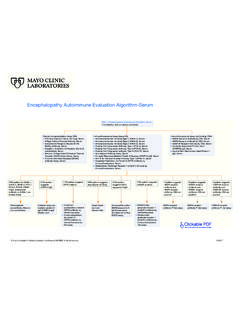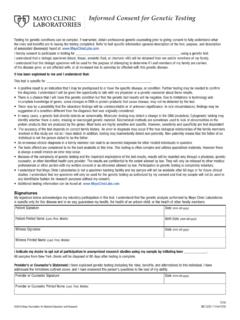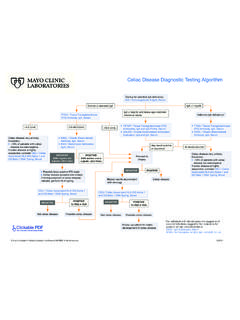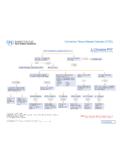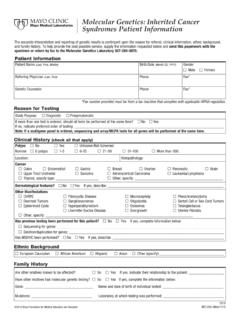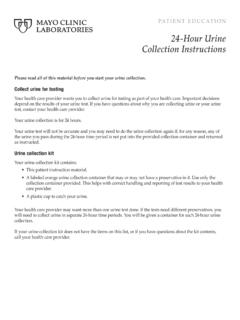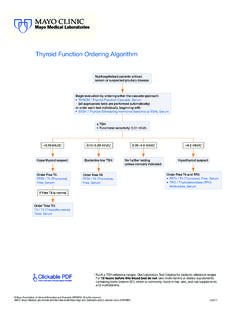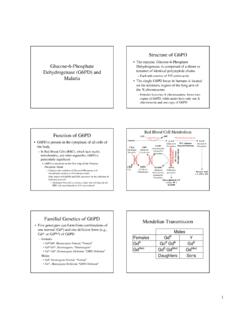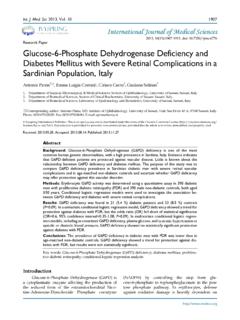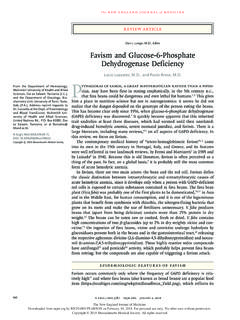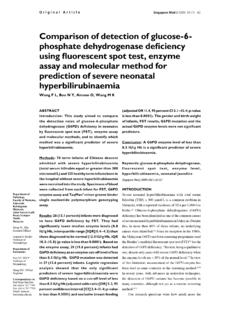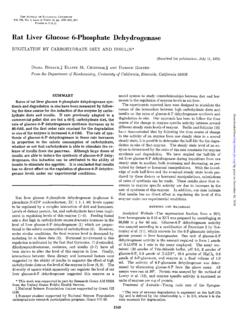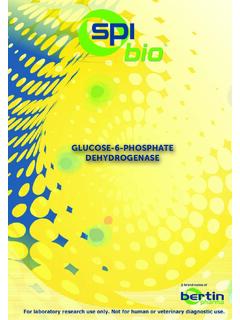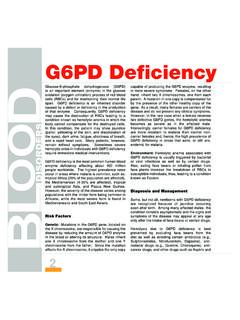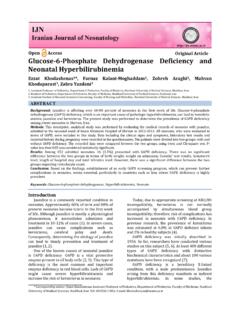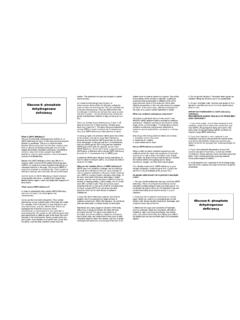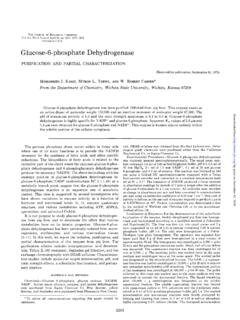Transcription of Mayo Medical Laboratories Glucose-6-Phosphate ...
1 Newborn Screening Act SheetGlucose-6- phosphate dehydrogenase Deficiency 2018 mayo Foundation for Medical Education and ResearchMC4091-86rev1018 Condition Description: Glucose-6-Phosphate dehydrogenase (G6PD) is an X-linked genetic disorder caused by a deficiency of G6PD in erythrocytes resulting in risk to develop neonatal hyperbilirubinemia, acute hemolysis or chronic, nonspherocytic hemolytic anemia. There are variants of G6PD, from chronic hemolytic disease to an asymptomatic condition with increased risk to develop acute hemolytic episodes that can be triggered by medication, viral or bacterial infections, or ingestion of fava beans. Female carriers are almost always should take the following actions: Contact family to inform them of the newborn screening result and ascertain clinical status, such as whether the baby is jaundiced or has any signs of hemolytic disease.
2 Assessment should include laboratory testing such as bilirubin levels, CBC with differential, blood smear and reticulocyte count. Consult with hematologist. Evaluate the newborn. If any sign (above) is present or infant is ill, transport to hospital for further evaluation and treatment in consultation with a pediatric specialist. Initiate timely confirmatory/diagnostic testing and management, as directed by specialist. Provide family with basic information about G6PD Evaluation: Confirmatory G6PD enzyme testing. Patients with decreased values indicative of G6PD should have follow-up molecular genetic testing. Infants who screen positive for G6PD may have falsely normal results on G6PD erythrocyte testing if they have reticulocytosis, which can occur to compensate for anemia or hemolysis. Therefore, consider retesting infants with neonatal jaundice or hemolytic disease at 3 months of age while treating symptomatically.
3 Female carriers may also be Expectations: G6PD deficiency is a very common X-linked condition, impacting about 400 million people worldwide. G6PD deficiency is caused by mutations in the G6PD gene. G6PD deficiency has very high frequency in Southeast Asians and is the most common cause of hemolytic disease of the newborn in Southeast Asian neonates. It is also seen in persons of African and Mediterranean descent. Infants with G6PD deficiency are at risk to develop hemolytic disease or neonatal jaundice, in the severe form, or may be asymptomatic with susceptibility to develop acute hemolytic episodes with exposure to certain medications such as rasburicase, methylene blue and dapsone, or with viral or bacterial infections or ingestion of fava beans, in the mildest form. Female carriers are almost always Information Genetics Home Reference Genetic Testing Registry Baby s First TestMayo Clinic Laboratories Testing G6PD / Glucose-6-Phosphate dehydrogenase (G-6-PD), Quantitative, Erythrocytes G6 PDB / Glucose-6-Phosphate dehydrogenase (G6PD) Full Gene Sequencing
